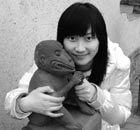-
-
China Daily E-paper
Xiong Lei
US arms sale to Taiwan reveals ignorance, disrespect
By Xiong Lei (China Daily)
Updated: 2010-02-10 07:49
 |
Large Medium Small |
The United States is going ahead with its plan to sell arms to Taiwan despite the Chinese government's repeated warnings and protests. Though this is not the first outrageous act of the US administration after Barack Obama assumed office just over a year ago, it definitely is one of the most provocative. Besides, it ridicules the so-called "strategic partnership" between China and the US.
Is the US move appropriate for a strategic partner? The US recognizes that Taiwan is an integral part of China. Then why does it have to sell arms to Taiwan? How would it react if China were to sell weapons to Alaska or Hawaii?
The US has long been playing a suspicious role in other countries' internal affairs. Take a recent incident as example. During his visit to the Republic of Korea last October, US Secretary of Defense Robert Gates reassured his hosts and partners all help against the so-called "threat" from the north: "The United States is committed to providing extended deterrence using the full range of American military might - from the nuclear umbrella to conventional strike and missile defense capabilities."
People both in the north and the south of the 38th parallel are Koreans, just as we across the Taiwan Straits are Chinese. And just like the Koreans, we are one family.
It is natural for family members to disagree or fight over certain issues. But it is not natural for a good neighbor or strategic partner to do what the US has been doing. A good neighbor or partner would try to pacify the quarreling family members and calm things down, instead of adding fuel to fire, as the US is doing by threatening to use "the full range" of its might to take on one of the sides on the Korean Peninsula.
Its insidious acts are not confined to the Korean Peninsula. It has been doing the same in China, the Middle East and other parts of the world, too.
As a Chinese who has relatives in Taiwan, I can claim to know people on the both sides of the Straits well. I can say with certainty that we are one family and that outside interference, like those by the US, will not bring about the reunion we desire. We have differences, but we also have the capability to settle them peacefully, without external interference.
That unfortunately is a cultural trait that seems to be beyond the US administration's comprehension. Or, perhaps the US doesn't want to understand it. Instead, it prefers, rather loves, to interfere in other countries' affairs, although that is not what diplomacy in the 21st century should be.
One does not need to be an expert in Sino-American or international relations to see what the US arms sale to Taiwan reflects.
It shows America has no respect for relations, including its strategic partnership with China, cares little about diplomacy, is uncomfortable with peace and hence ready to instigate trouble at the slightest chance it gets.
China's Foreign Ministry spokespersons use an expression, "it hurts Chinese people's feelings" to describe the effects of such US actions. Since the US doesn't care about our feelings, as its blatant interferences with our internal affairs show, we should have been hardened to this by now.
We may not be able to stop the arms sale to Taiwan or install a friendly administration in the White House. But we can find out which US officials and public figures are hostile to Chinese people, both on the mainland and in Taiwan.
We can do one more thing: abandon the illusion of a "G2" or "Chinamerica". For all US intents and purposes, China is only its partner in need, not indeed.
The US arms sale has taught us a good lesson: face reality and take a realistic stance toward the US.
The author is a guest professor of journalism in Beijing Foreign Studies University and Tsinghua University.
(China Daily 02/10/2010 page9)













